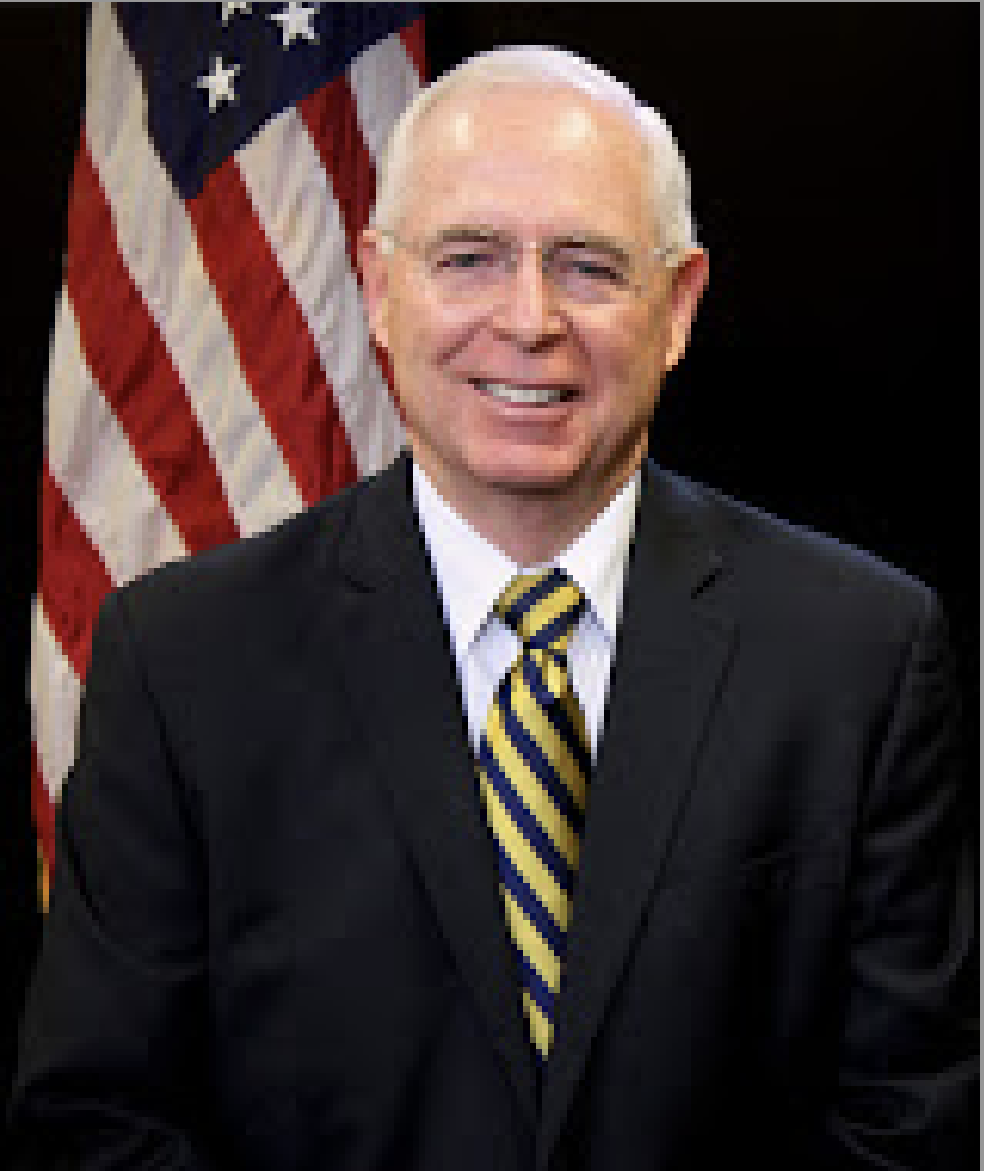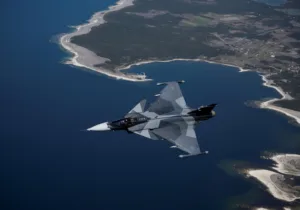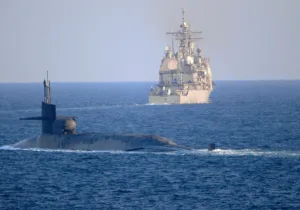Turkey (Türkiye) controls the Dardanelles and the Bosphorus straits, allowing the nation to regulate passage to and from the Black Sea. Despite six states bordering the Black Sea, it has only two powers in practice—Russia and Turkey. As the strongest NATO ally on the strategically significant sea, Turkey stands in the way of the Black Sea becoming a “Russian lake.” Over a year since Russia’s invasion of Ukraine, Turkey has managed to strike a fragile balance between the two warring nations and serves as one of the best-equipped mediators for this conflict.
Despite serving US interests as such a mediator, Turkey’s apparent dismissal of Western ideals confuses US policymakers. Deriving from Islam’s union of religion and state, Turkey’s constitution grants the government the legal and moral authority to enforce proper Islamic orthopraxy. Because Western ideals for religious freedom conflict with Islam’s orthopraxy, diplomacy between the US and Turkey stands as the greatest challenge for US interests. Instead, US policymakers should focus on increasing military cooperation through armament deals and deepening economic ties with Turkey.
2022 Russo-Ukrainian Conflict
Thus far in the current conflict, Turkey has uniformly applied the Montreux Convention, which regulates passage through the Turkish Straits and the conduct of military vessels in the Black Sea. On February 28, 2022, Turkey invoked Article 19 of the Convention, meaning Moscow cannot transfer warships to the Black Sea to replace damaged or destroyed vessels. Even before the February 2022 invasion, Ukraine and Turkey have increased their cooperation in the Black Sea, as neither has the capability to single-handedly take on Russia’s Black Sea fleet. Additionally, Turkish Bayraktar TB2 drones have significantly aided Ukrainian forces against Russia’s invasion.
In rhetoric, Ankara has denounced the September 2022 referendums for Russian-occupied territories, and Turkey voted in conjunction with the West in the UN General Assembly in condemning the invasion. At the same time, Ankara has not imposed sanctions on Russia like other NATO countries, as Turkey’s unstable economy depends heavily on Russian business.
Ankara has demonstrated its prowess and unique position between the warring nations in its role in negotiating for a grain export corridor. In July 2022, after accusations arose that the Russian ship Zhibek Zoly had carried stolen Ukrainian grain through the Turkish Straits, Ankara managed to negotiate a safe export corridor for Ukrainian grain in parallel agreements with Russia and Ukraine while not antagonizing either party.
Islam’s Impact on Turkey
Beginning with Erdogan’s rise to power in 2003, Turkey’s government has increasingly attempted to reassert the influence of Islam on the populace, since around 99 percent of the Turkish population follows Islam, according to a recent Department of State report. Turkish expert Soner Cagaptay believes Erdogan’s upbringing in a pious and socially conservative family led him to resent Turkey’s secular government and its restrictions on any public role for religion following the rise to power of Mustafa Kemal Atatürk in the early 20th Century.
While the government of Turkey is constitutionally secular, within the Turkish constitution is the Diyanet (Directorate of Religious Affairs), whose role is to enforce Islamic matters and provide administration for mosques. This legal framework provides the authority for the enforcement of Islamic practices considered by the West as contrary to human rights. For instance, blasphemy is outlawed, which includes public disrespect for religion, and insulting a religion could result in six months to a year in prison.
Turkey’s constitutionally secular government acts in accordance with Islamic tenets of orthopraxy. According to the Islamic doctrine of fitra, people are born morally neutral; thus, the government’s role is to foster a culture where citizens will pursue holy living, obey shari’ah law, and thereby save their souls. For religiously conservative men like Erdogan who grew up in a secularizing Turkey, secularization presented a threat to the human soul.
Whereas the traditional Western, Christian view of the separation of church and state is a safeguard to protect the church from the state, Islam understands such a division as injurious to religion. Many of the violations of human rights such as LGBTQI+ discrimination and media restrictions have elements of enforcing the orthopraxy of Islam. From a Western, Christian perspective, such laws directly regulating religion seem like a breach of the government’s jurisdiction, but for Islam, this regulation is exactly under the government’s role of enforcing orthopraxy.
Evaluation of US-Turkey Relations
Diplomacy with Turkey as a NATO ally is the greatest challenge for the US, as Washington cannot treat Turkey—the only majority Islamic state—as just another member. Having recently secured his re-election, Erdogan will continue to lead the nation under a non-Western worldview, with shari’ah law taking precedence over individual human rights. US policymakers should provide incentives, especially economic ones, for Turkey’s acquiescence and should recognize that US policymakers will likely not achieve all their desires for human rights in Turkey within a single package.
While Turkey’s military is the second-largest in NATO, Ankara lost its naval superiority in the Black Sea after Russia’s annexation of Crimea and Russia’s subsequent development of their Black Sea Fleet. Because Turkey remains opposed to the Black Sea becoming a “Russian lake,” Turkey will continue to follow similar military interests as the US, regardless of its religious interest. In Fall of 2021, Turkey requested to purchase F-16s to upgrade its aging fleet, and Ankara’s recent stance against Russia in the Black Sea should encourage the Biden administration to promote this sale to Congress. Overall, Turkey’s willingness to work with the US militarily over Russia is promising for the US.
Economic support to Turkey stands as one of the most promising avenues to encourage US interests in Turkey. After years of economic prosperity, Turkey now faces a crisis. Turkey’s currency, the lira, has rapidly devalued, with inflation peaking at 86% in October 2022 and has lowered only to 55% by February 2023. Instead of raising interest rates to stem inflation, Erdogan has lowered them because he believes high-interest rates contradict Islamic teachings. Deepening direct economic ties with Turkey would both aid Turkey’s troubled economy and create opportunities for business-to-business relationships to broaden the understanding of where the two societies have common norms, traditions, and values. As a Department of State report notes, “U.S.-Turkey trade remains modest compared to its potential.”
Conclusions
For US policymakers, addressing religious freedom and human rights in Turkey is complicated by the country’s Islamic foundation, which presents a barrier to direct negotiations. Instead, establishing trust through economic cooperation offers a more viable approach. The return of Mehmet Simsek as finance minister, with his commitment to implementing “rational” economic measures, provides a positive signal for US policymakers seeking to deepen business-to-business economic ties with Turkey, as well as expectations for stability in military cooperation.
A paradox is that the role of Islam in Turkey offers an additional opportunity for building trust, as conservative values related to family and society can be found in both traditional Christianity and Islam. Enhancing religious freedom in Turkey and strengthening US-Turkish relations would be better served by moving away from a purely secular, diplomatic approach. Embracing these common norms, traditions, and values would open the dialog to a much broader set of actors on both sides, as well as provide more opportunities for cooperation.
Such an adjustment in approach by the Biden Administration would align with the recent request by a broad coalition of African leaders, seeking recognition and respect for African shared values and traditions, for very similar reasons. Such a sea change in policy by the US would recognize not only Turkey’s key role in the Black Sea, but also as a gateway toward improved US relations with the greater Islamic world.








 Sponsor a student for Christianity & National Security 2024
Sponsor a student for Christianity & National Security 2024